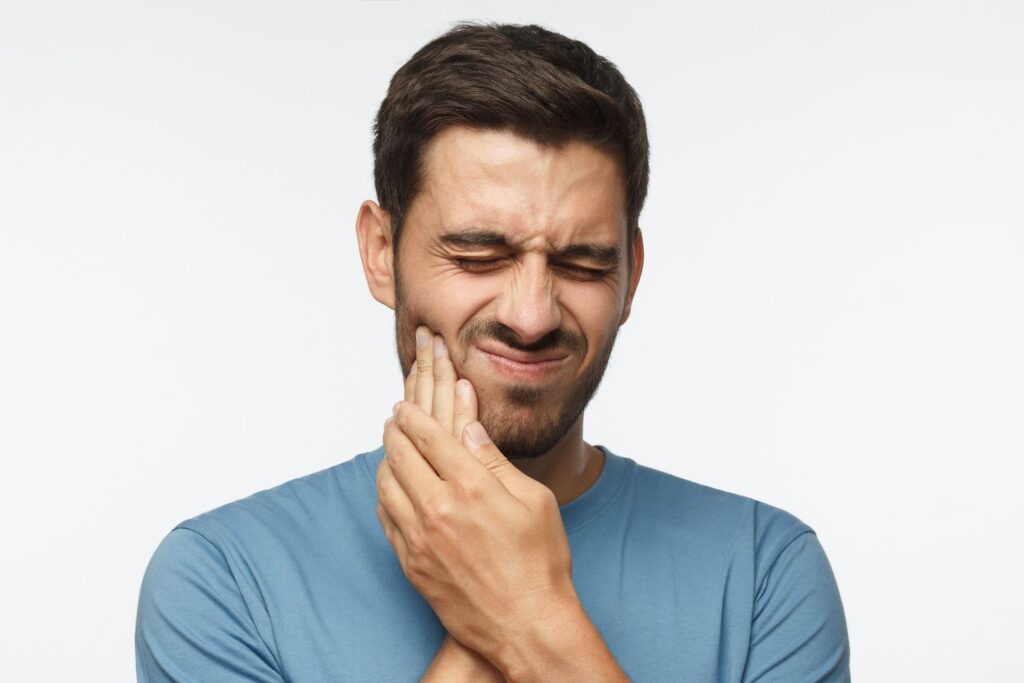Your body is a system that has various interconnected pieces–much like a puzzle. Sometimes, an issue in one part of the body can cause problems in another. Your oral health is a complex puzzle as well. Even pieces that don’t seem connected can help you understand more about your health. Two of these important components include dental erosion and your jaw health.

Dental Erosion: The Silent Threat to Your Smile
Dental erosion is the gradual wear and tear of your tooth enamel. One way that your enamel can erode is through acid exposure. This acid can come from various sources. This may include acidic foods, beverages, and even stomach acid in cases of acid reflux. As the enamel erodes, your teeth become more vulnerable to sensitivity, cavities, and other dental issues.
What’s Behind TMJ Issues?
The temporomandibular joint (TMJ) is the hinge that connects your jaw to your skull. It’s responsible for the smooth movements of your jaw. This joint allows you to talk, chew, and yawn. TMJ issues can arise from factors like stress, jaw misalignment, or teeth grinding. Many people with TMJ issues can experience pain and chronic headaches. Over time, it can also affect your ability to open and close your mouth. But, how does dental erosion connect to TMJ issues?
The Hidden Connection: Dental Erosion’s Impact on TMJ
Surprisingly, dental erosion and TMJ issues are connected. As your enamel erodes, it can change the shape of your teeth. Over time, this can alter how your teeth come together. The ridges and valleys of your teeth should fit together perfectly. A change in how your teeth come together can put extra strain on your jaw joint. This is because it will affect the alignment of your jaw. This can also be a factor in developing TMJ issues or worsening your current symptoms.
Bridging the Gap: How to Protect Your Oral Health
Taking care of your teeth is vital to prevent dental erosion and TMJ from wreaking havoc on your oral health.
One way you can reduce your chances of dental erosion is to look at your diet. You can limit how much acid you consume in your foods and drinks. For example, citrus foods, soda, and vinegar-based dressings contain high amounts of acid. When you do indulge, rinsing ise your mouth with water afterward can neutralize the acids.
Your oral hygiene routine can help defend your teeth from erosion. When your brush your teeth, use a fluoride toothpaste and a soft-bristle toothbrush. This helps protect your teeth from erosion and decay.
Another common trigger for teeth grinding and TMJ is stress. When stressed, many people clench their jaws or grind their teeth. This can lead to TMJ and dental erosion. Stress-reduction techniques like deep breathing, yoga, or meditation can also help keep stress at bay.
If you grind your teeth, consider also wearing a custom mouthguard at night to prevent excessive wear and tear that can worsen TMJ symptoms.
